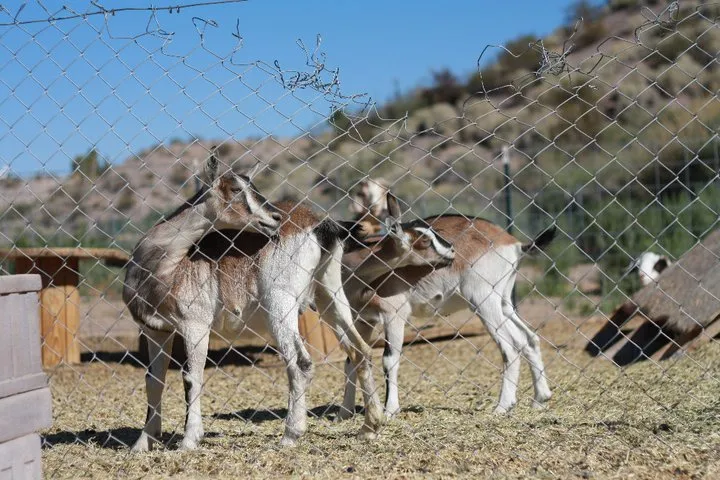This study examines how a shift to lower environmental impact diets (diets with less meat and dairy) might the affect nutrient intakes of young children in the Netherlands. It is unusual in that it looks specifically at children, rather than adults or the general population.

The study took at its starting point average Dutch children’s diets (aged 2-6) – where the overwhelming majority consume meat and dairy products daily. It then modelled two alternative dietary scenarios –one where 30% and one where 100% of the dairy and meat component of the diets is replaced by plant substitutes chosen for their lower environmental impact. Note that the metrics used to measure environmental impact were greenhouse gas emissions and land use. The choice of substitute is designed to be in keeping with the ‘meal occasion’ in question (i.e. peanut butter substituting for cheese in a sandwich) and substitute foods included soy, pulses, spreads such as peanut butter and occasionally sweet foods.
Predictably, the environmental impacts of the alternative diets were lower than in the reference case (ie. the average diet today). As regards nutrients, positive outcomes included increases in fibre, reductions in saturated fatty acid intakes and increases in iron (albeit in less bioavailable form). However, intakes of important nutrients such as zinc, calcium, thiamin and Vitamin B12 were also reduced). The authors of the study seem to think that the reductions do not warrant much concern when it comes to the partial-replacement scenario but that it may need attention where a full substitution is made.
A table copied from the paper is as follows:

And their final conclusions also copied as follows: “We conclude from the current modelling study that the partial replacement of meat and dairy by plant-derived foods is beneficial for children’s health by lowering SFA intake, increasing the fibre content and maintaining similar micronutrient intakes. When full replacements are made, attention is recommended to ensure adequate thiamin,
vitamin B12 and Zn in children’s diets.”
Note that the paper touches only very briefly issues of acceptability (i.e. the extent to which soy replacements are liked or not liked by young children). It is also worth noting that the nutritional and environmental impacts of the diets of real life vegetarian and vegan children may be very different from the ones modelled. For instance, vegetarian children may grow up used to avoiding meat (and therefore there will be no acceptance issues) and the whole composition of meals may also be very different – i.e. it is not necessarily that of ‘meat substitute and two veg’.
Abstract
OBJECTIVE: Food has a considerable environmental impact. Diets with less meat and dairy reduce environmental impact but may pose nutritional challenges for children. The current modelling study investigates the impact of diets with less or no meat and dairy products on nutrient intakes.
DESIGN: Energy and nutrient intakes were assessed for observed consumption patterns (reference) and two replacement scenarios with data from the Dutch National Food Consumption Survey - Young Children (2005-2006). In the replacement scenarios, 30 % or 100 % of the consumed dairy and meat (in grams) was replaced by plant-derived foods with similar use.
SETTING: The Netherlands.
SUBJECTS: Children (n 1279) aged 2-6 years.
RESULTS: Partial and full replacement of meat and dairy foods by plant-derived foods reduced SFA intake by 9 % and 26 %, respectively, while fibre intake was 8 % and 29 % higher. With partial replacement, micronutrient intakes were similar, except for lower vitamin B12 intake. After full meat and dairy replacement, mean intakes of Ca, Zn and thiamin decreased by 5-13 %, and vitamin B12 intake by 49 %, while total intake of Fe was higher but of lower bioavailability. With full replacement, the proportion of girls aged 4-6 years with intakes below recommendations was 15 % for thiamin, 10 % for vitamin B12 and 6 % for Zn.
CONCLUSIONS: Partial replacement of meat and dairy by plant-derived foods is beneficial for children's health by lowering SFA intake, increasing fibre content and maintaining similar micronutrient intakes. When full replacements are made, attention is recommended to ensure adequate thiamin, vitamin B12 and Zn intakes.
Citation
Temme EH, Bakker HM, Seves SM et al. (2015). How may a shift towards a more sustainable food consumption pattern affect nutrient intakes of Dutch children? Public Health Nutr;18:2468-78.
See the full paper here. The dairy-alternatives company Alpro has also covered the study here.
Comments and thoughts on this paper are welcome, especially as to the possible nutritional implications. You will need to be signed in as a member to comment, register or log-in to the website here.
You will find related resources in the research library categories on sustainable healthy diets, plant-based dairy substitutes, vegetarianism/veganism, micronutrients.




Comments (0)